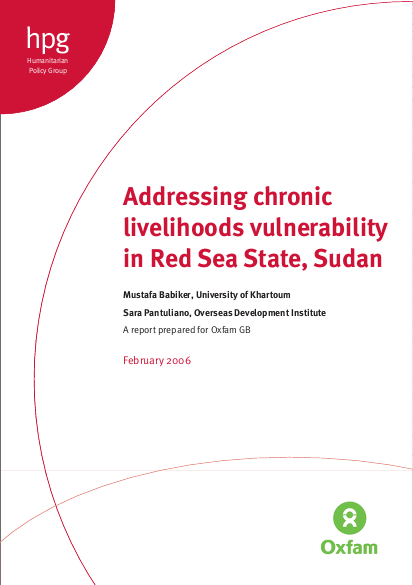
The study was undertaken to help Oxfam gain a better understanding of the policy processes underpinning main livelihoods trends in Red Sea State in order to maximise the impact of its relief and development work in the state. The findings of the research were generated through a comprehensive review of academic publications, grey literature and existing policy documents at the national and state levels as well as through discussion with key informants and community groups. The document describes the main geo-political characteristics of Red Sea State and its population. Red Sea State is described as a non equilibrium environment where there is no long tem balance between the populations and other elements of the ecosystem. Some of the main features of this environment include high rainfall variability, scarcity of water, low natural productivity and extreme temperatures. The study describes how, in order to cope with such a complex ecosystem, Beja pastoralists have over the years adopted a set of dynamic and flexible strategies aimed at facilitating survival by allowing for the exploitation of multiple resources. Such strategies, such as mobility, herd diversification and redistribution and a strict body of customary rules, have ensured the resilience of the Beja pastoral system for centuries and have allowed people to bounce back and recover from the frequent droughts and outbreaks of famine which have repeatedly struck the region. However, these elements have been fundamentally weakened by a range of external factors which have contributed to undermine the resilience of the Beja livelihoods system. These include a number of discriminatory colonial and independent government policies which have considerably exacerbated the precariousness of pastoralist livelihoods throughout eastern Sudan as well as in other parts of the country.
